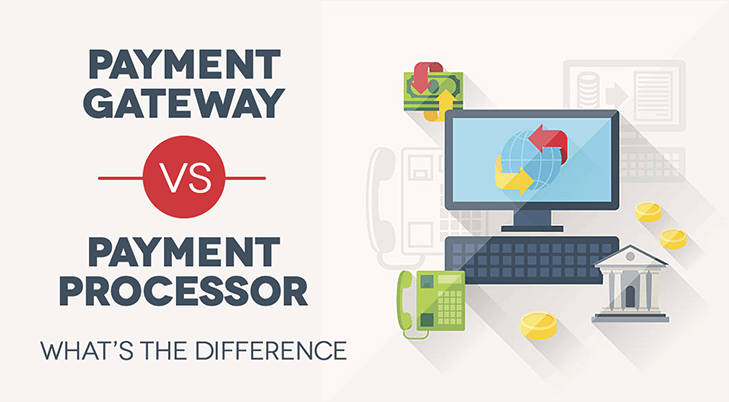

Payment Gateway Vs. Payment Processor: What’s the Difference?
Presently, the usage of both Payment gateway in UAE and payment processor is increasing significantly. Both of them help validate the transaction from merchants, initiate the transactions, and forwarding the request to the card-issuing bank. But there are some differences between both of them as each of them has a different meaning and responsibilities.
What is the Payment Gateway?
The payment gateway is an interface between payment processors and vendors. Payment Gateway authorizes the transactions for eCommerce stores, web & app. The role of payment gateways within businesses will ensure smoother payment request from the vendor side and pass it onto the payment processor for further validation. Before the processor could facilitate the payment, it needs to get authorization from the payment gateway. The payment gateway option selected within a business can accept or decline the transaction requests.
What is the Payment Processor?
The role of the payment processor is to facilitate the transaction on receiving the validation from the payment gateway. These servers build a direct connection with the bank institutions and card companies like MasterCard or Visa. On validation of payment gateway validates for the transaction request, it will be forwarded to the payment processor. Once the payment request from the merchant is received, the same will be forwarded to the card-issuing institution for further validation.
How to select Between Payment Gateway and Payment Processors?
No matter whichever online or international payment gateway you select, it allows easy set-up with the vendors’ eCommerce site or application. The vendors can easily make huge savings on the overall expenses by skipping the payment gateway and integrating the processor only. Some of the factors that need to be kept in mind while selecting the payment processor and payment gateway in UAE
- Transaction Volume: The fees charged by payment processors on transactions must be kept in mind as some payment processors charge quite less for a high volume of transactions.
- Set up cost and time: The overall time and cost required for integrating the payment processor with a merchant’s application must not be overlooked at all. The merchants must complete the certification process before setting up the payment processor. The role of the payment gateway is limited regarding approving the transaction requests from merchants and customers. So the overall set-up time and cost are lesser as compared to the payment processors, which only include a single API layer.
- Compliances: Payment processors have rigid compliances and PCI certified solutions as compared to payment gateway who need merchants to meet the ISO 8583 integration.
- Settlement: The payment gateway can easily look after the online transaction settlement on the vendor’s behalf while the payment processor looks upon vendors to forward the settlement request and take care of the settlement file. Also, some payment gateway comes with a white label payment gateway solution to help brands to get a customized payment gateway with there brand name.
So these are some of the major factors which all the merchants must look at before deciding between the payment gateway vs payment processor.









